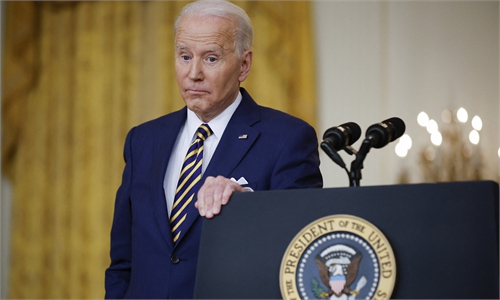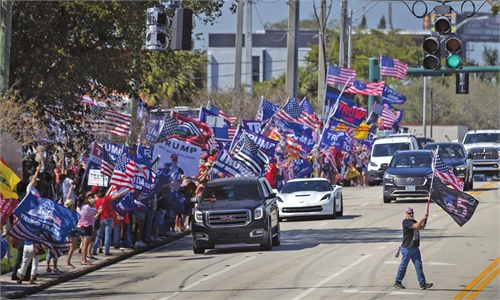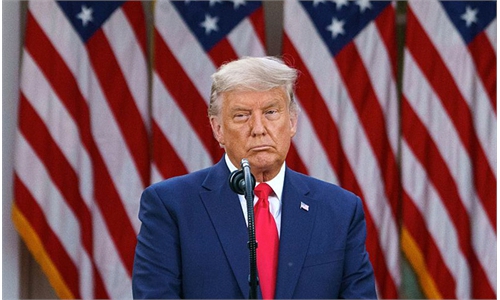Trump may avoid defamation suit
Appeals court rules ex-president qualified as government employee
A federal appeals court set aside a judge's ruling that Donald Trump could be sued for defamation by E. Jean Carroll after denying he raped her, though it stopped short of declaring the former US president immune from the author's lawsuit.
In a 2-1 decision on Tuesday, the second US Circuit Court of Appeals in Manhattan asked an appeals court in Washington to weigh in on whether the laws of that district shielded Trump from liability.
But the Manhattan court also accepted Trump's argument that he qualified as a US government "employee" when he allegedly defamed Carroll, a condition underlying his immunity claim.
A dissenting judge, Denny Chin, would have let Carroll pursue "at least some" claims, saying "Carroll's allegations plausibly paint a picture of a man pursuing a personal vendetta against an accuser."
Carroll sued Trump in November 2019, and had been hoping to go to trial as soon as February 2023.
She had accused Trump in a June 2019 book excerpt of having raped her in late 1995 or early 1996 in a dressing room at the Bergdorf Goodman department store in midtown Manhattan.
Trump, then in his third year in the White House, responded to her accusations by telling a reporter he did not know Carroll, that "she's not my type," and that she concocted the rape claim to sell her book.
Alina Habba, a lawyer for Trump, said in a statement that she was "extremely pleased" with Tuesday's decision, saying it would "protect the ability of all future presidents to effectively govern without hindrance."
Roberta Kaplan, a lawyer for Carroll, said in a statement she was "confident" the District of Columbia court would let the case proceed.
On September 20, Kaplan said Carroll planned to sue Trump for battery and inflicting emotional distress even if the defamation claims were thrown out.
She cited a new state law, the Adult Survivors Act, which gives adult accusers a 1-year window starting on November 24 to bring civil claims over alleged sexual misconduct occurring long ago.
Trump claimed he was shielded from Carroll's lawsuit by a federal law immunizing government employees from defamation claims.
He also said letting the case proceed could unleash a flood of frivolous lawsuits whenever presidents spoke.
US District Judge Lewis Kaplan had found that Trump was not a government employee, and that even if he were, he exceeded the scope of his employment when talking about Carroll.
Asking the DC Court of Appeals to address the second issue, Circuit Judge Guido Calabresi said the district's law was "genuinely uncertain" and the matter was "of extreme public importance."
In a 2-1 decision on Tuesday, the second US Circuit Court of Appeals in Manhattan asked an appeals court in Washington to weigh in on whether the laws of that district shielded Trump from liability.
But the Manhattan court also accepted Trump's argument that he qualified as a US government "employee" when he allegedly defamed Carroll, a condition underlying his immunity claim.
A dissenting judge, Denny Chin, would have let Carroll pursue "at least some" claims, saying "Carroll's allegations plausibly paint a picture of a man pursuing a personal vendetta against an accuser."
Carroll sued Trump in November 2019, and had been hoping to go to trial as soon as February 2023.
She had accused Trump in a June 2019 book excerpt of having raped her in late 1995 or early 1996 in a dressing room at the Bergdorf Goodman department store in midtown Manhattan.
Trump, then in his third year in the White House, responded to her accusations by telling a reporter he did not know Carroll, that "she's not my type," and that she concocted the rape claim to sell her book.
Alina Habba, a lawyer for Trump, said in a statement that she was "extremely pleased" with Tuesday's decision, saying it would "protect the ability of all future presidents to effectively govern without hindrance."
Roberta Kaplan, a lawyer for Carroll, said in a statement she was "confident" the District of Columbia court would let the case proceed.
On September 20, Kaplan said Carroll planned to sue Trump for battery and inflicting emotional distress even if the defamation claims were thrown out.
She cited a new state law, the Adult Survivors Act, which gives adult accusers a 1-year window starting on November 24 to bring civil claims over alleged sexual misconduct occurring long ago.
Trump claimed he was shielded from Carroll's lawsuit by a federal law immunizing government employees from defamation claims.
He also said letting the case proceed could unleash a flood of frivolous lawsuits whenever presidents spoke.
US District Judge Lewis Kaplan had found that Trump was not a government employee, and that even if he were, he exceeded the scope of his employment when talking about Carroll.
Asking the DC Court of Appeals to address the second issue, Circuit Judge Guido Calabresi said the district's law was "genuinely uncertain" and the matter was "of extreme public importance."



